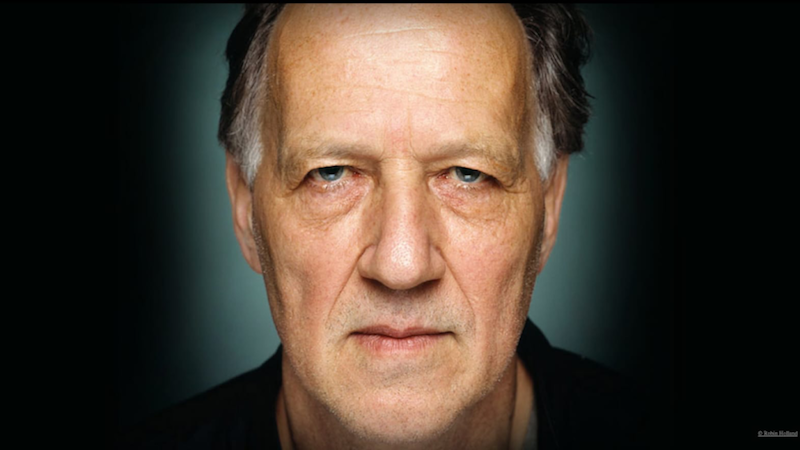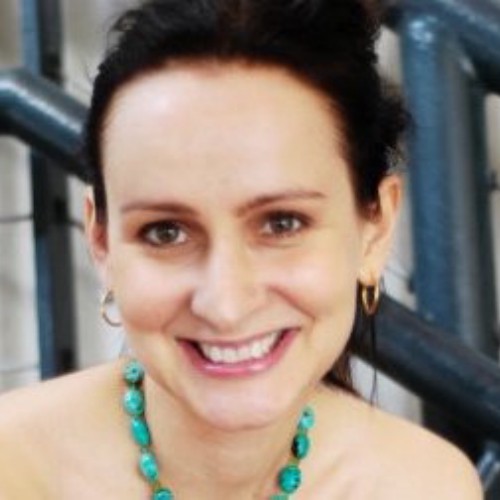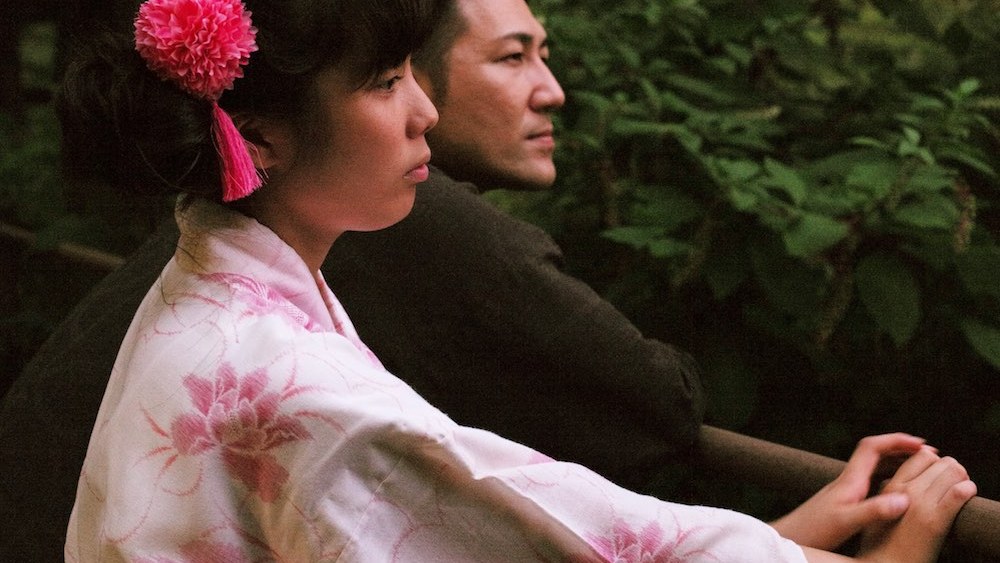At the very beginning of Werner Herzog’s ‘Family Romance Llc’ I wasn’t sure if I was watching a narrative feature or a documentary. I purposely avoid reading the press notes before watching a film because I want to experience wonder and surprise at my first viewing. And I knew I would watch something groundbreaking since this is the same Herzog who changed my life with ‘Fitzcarraldo’ when I was just shy of fifteen.
But within seconds, my inner question was answered when the names of the actors interpreting the characters started to be listed in the titles. Yet ‘Family Romance Llc’ is nothing like what I’d ever watched before. Herzog revolutionized my world back in 1982 with that movie of a man’s impossible journey through the Amazonian forest. He did it again in Cannes, this year, with one of his latest films.
It is unarguable that Herzog is one of the most prolific filmmakers today. He discovers the nooks and crannies of our collective existence and manages to build whole masterpieces around it. He can turn public figures we are familiar with — like Mikhail Gorbachev — into human beings. And ones we may not know as well, like the late Bruce Chatwin, into legends.
But with ‘Family Romance Llc’ Herzog takes inspiration from a real life business which exists in Japan and was featured in The New Yorker magazine and builds on it, like the magician he is. I relished in watching all the various vignettes of this film — fake family members rented out to make life simpler and happier — I lapped up the Cinéma vérité feel of this oeuvre and the constant reminder that in today’s society, everything is available. If you just have the money to rent it or buy it.
Following is an interview with the Maestro himself, from Cannes.
Was Japan a country you knew very well?
Werner Herzog: No. But this wasn’t completely new because about twenty years ago I staged the world premiere of a new opera by a Japanese composer, so I know how to work with Japanese people, without, by the way, speaking the language. When you look at the dialogues, they are completely at ease and I spoke with somebody who had seen the film last night, from Japan, he said, “this is totally as we speak and do things!”
How did you manage that?
Herzog: I would explain very specific situations to the actors.
Why do you think people want to buy illusions?
Herzog: That’s part of our life and that’s why you go to a magician’s show and that’s why you go church, for example, where they tell you that you’ll be accepted in Paradise and you can even pray but the god never answers back. Or for example, when you look at daily self representations on Facebook or social media. They are all embellished, partially invented. Invented selves. It’s ever present.
Is this film fiction or a documentary?
Herzog: It’s fiction. When you are out in the street with a failed model who has paparazzi around her, you are in the street and they take photos and there is a commotion — you cannot organize it with a two men crew. You do what is happening there. It’s all very well organized and very scripted. But it looks as if it were all so real that I even saw something in Variety. And they have professional people who see films, yet Variety thinks is a documentary. Which I think is a wonderful mistake!

So what is the reality behind it?
Herzog: The reality behind it is that there is a monumental solitude coming at us, and that’s not a Japanese phenomenon alone. But for example the Massachusetts Institute of Technology, a part of it is for robotics. But not the ones that you see in ‘Star Wars’ that fight and destroy you. It’s companion robotics, very very sweet fluffy creatures with big eyes who can read 800 facial expressions. My wife experienced it and she thought, “what can that creature do to me?” And the creature looks at her with big eyes and puts her head a little bit sideways and says, in a really sweet voice, “ah, you do not trust me.” And it goes on and on, and in five minutes, my wife says she was completely hooked. And in love with that companion robot.
That’s what we look for in life, for someone to understand us.
Herzog: Yes, and of course, so much is fake. We know it — on the internet and fake news. And when you are at a Hollywood party, a good amount of women have installations instead of breasts. Artificial installations, fifteen plastic surgeries on their face and they look like zombies. But they think it’s representation of real femininity and some men take it for femininity. That’s the oddest of all things.
Are you scared of this kind of thing really happening?
Herzog: No, the scary thing is not that certain things are for hire, missing family members and so on. What is scary is this monumental amount of existential solitude and this is why it’s coming at us. We all know it’s not just Japanese… When I speak about companion robots and MIT it’s very clearly where we are going. We know it’s coming at us with great vehemence.
We constantly are looking at our devices but have forgotten how to look at each other’s faces…
Herzog: I have not. I don’t have the device. And I’m not on Facebook, am not on Twitter but if you look me up online there is a Facebook and Twitter — it’s all fake. It’s all forgeries. Or voice impersonators who give you advice when you have trouble in your love life. Although you look completely wonderful and I’m sure you have a well balanced emotional life.
What do you do when you see all these fake accounts?
Herzog: Oh, you have to get used to it. Representation of self is not what it used to be before. I just ignore it, let it be out there. These are like my unpaid bodyguards, let them do battles out there. I don’t even know which battle…
How did you choose the different episodes — the fake father, the lottery winner, the failed model, etc?
Herzog: As a storyteller, very easily. I know immediately this is good stuff. Out of two hundred episodes and anecdotes I know one that comes with me and has to be filmed.
All this is about solitude you said, but don’t you think is also the fascination for storytelling, the reason we go to the cinema, to find characters which seem familiar to us?
Herzog: Yes, Family Romance is quintessential cinema. In cinema normally you are assisted as an audience. Of course the storylines may go into the unknown but the ingredients, the building blocks are all known. Discussions while driving a car, on the phone or at the dinner table. Or in bed, with the lovers… Even in purely fantasy films, no one is surprised that all of a sudden a dragon comes flying in. But in this film, there isn’t a single thing you have ever seen before in a movie. Nothing.


